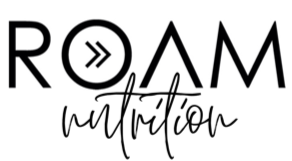Random Act of Kindness
In the last blog, we quickly discussed self-compassion. Discovering self-compassion can start the transition of negative self-talk to positive self-talk.Kindness and compassion are a little yin and yang. Kindness is to show empathy and compassion is the action you take to help other’s. I don’t believe you can have one without the other. Kindness has a ripple effect. Completing a simple random act of kindness for someone brings joy to you and the other person. Now, the other person does another random act of kindness for someone else and so on.

Have you ever considered how this same ripple effect can affect you if you were to show yourself kindness and self-compassion? Simply showing yourself empathy could lead to you providing yourself positive self-talk, which then could lead to another positive self-talk moment.
Improving your relationship with food is challenging. Showing self-compassion and kindness towards oneself is also challenging. The holidays can exacerbate negative self-talk towards the relationship with food regardless of an eating disorder. You don’t have to have serious food issues to struggle through the holiday season. It can simply be the holidays to throw off your normal routine increasing your stress levels and you resort back to the inner voices of judgement.
Attempting to extend oneself the self-compassion and kindness you need to continue to improve your relationship with food will also allow you to experience the ripple effect mentioned above.
Kindness has been shown to:
- Foster inclusion
- Treat others with respect
- Giving honest and constructive feedback
- Value a different perspective
- Generosity in giving and receiving
Now, let’s imagine showing oneself the same kindness one would show others and see how this ripple effect could personally improve more than one area of our own lives. Fostering inclusion can also mean accepting oneself, allowing oneself to be in a variety of environments one wouldn’t allow normally such as family meals, lunch with friends, or holiday parties. Treating yourself with respect, which could mean setting boundaries with others when it comes to food, conversations about body image or respectfully declining more food because you are satisfied. Try giving honest and constructive feedback with oneself. This can be even more challenging during the holiday season because there is more opportunity to engage in meals or events with food being served. Honest feedback can be telling oneself “I ate two pieces of pie instead of one.” Constructive feedback can be following up that comment with “I bet I didn’t eat enough at lunch and that is why I really craved sweets at dinner and ate two pieces of pie, that’s okay, I enjoyed the pie and was satisfied.” Valuing a different perspective could be as simple as physically seeing your reflection in the mirror and thinking “my thighs look big in this holiday dress” to “these legs show my strength, I am proud of how strong I am during challenging seasons.” Lastly, generosity in giving and receiving, allow yourself to give a positive thought and then actually allow yourself to accept the positive thought..
It’s human nature to put others before ourselves; however, this holiday season, I hope you can show yourself random acts of kindness. Watch for the ripple effect and then share your experiences with others.
You don’t have to be cruel to be kind.


